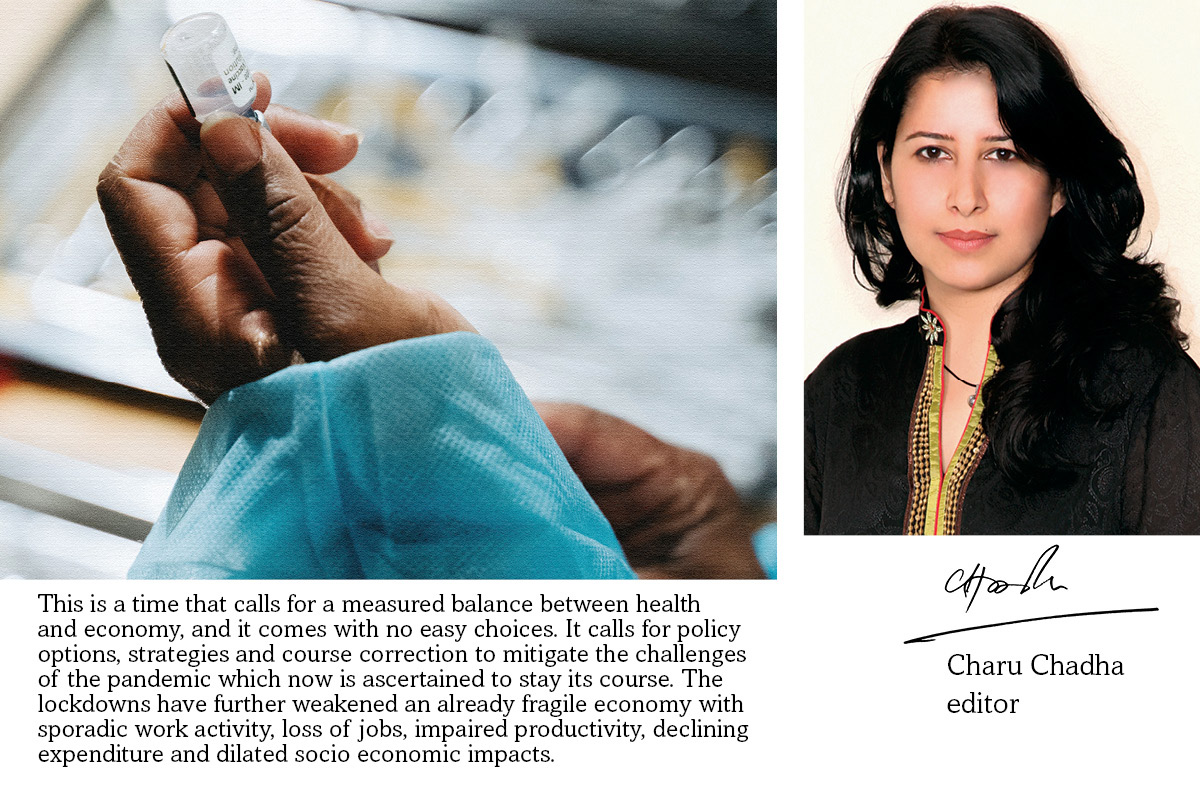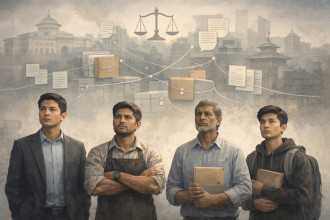
A Covid slumber has pervaded the mindset of most Nepalis as we struggle to cope with change in government, inadequate policies, rampant corruption, incessant rains and floods, education in limbo, migration… and global news of destruction and mayhem across countries. The Delta variant, vaccines, rates of infection and deaths due to Covid 19 now taking a strong backseat.
Accountability and transparency of government action relegated to newsroom chatter and buddy conversations. Perhaps this is the forced new normal – sanitized, anesthetized and occasionally delusional.
This is a time that calls for a measured balance between health and economy, and it comes with no easy choices. It calls for policy options, strategies and course correction to mitigate the challenges of the pandemic which now is ascertained to stay its course. The lockdowns have further weakened an already fragile economy with sporadic work activity, loss of jobs, impaired productivity, declining expenditure and dilated socio economic impacts.
While some economic indicators are showing a rising trajectory and some resilience, we cannot ignore that the country must maintain a smooth circulating domestic supply chain in addition to international trade. We must also continue to work on policies that allow us to face structural transitions especially in an increasingly digital marketplace. All of this while we do not lose sight of complexities of the global economy and changing geopolitics either.
Tourism is not set to recover to its formal levels any time in the immediate future. Nepal’s tourism sector faced a loss of approximately Rs 40 billion till July 21 due to the lockdown. It is estimated that the industry faces a loss of Rs 10 billion monthly during the lockdown in the hospitality sector comprising hotels, aviation and travel. Approximately one million workers depend on the industry with 60% employees facing job cuts and losses. In July last year, UNCTAD estimated that a 4- 12 month standstill in international tourism would cost the global economy between $1.2 trillion and $3.3 trillion, including indirect costs. But the losses are worse than previously expected, as even the worst-case scenario UNCTAD projected last year has turned out to be optimistic, with international travel still low more than a year after the pandemic started.
Provincial governments in the country contend with navigating new and old sub-national political alliances amidst unemployment, growing gaps in education and raised risk of secondary health crises in an already over burdened and weakened health system. Challenges of natural disasters, corruption and crime continue unabated.
The shape of things to come remain largely challenging for the common man with political parties playing for power and the public left with political rhetoric of unkept promises. We will emerge from the Covid crisis, no doubt, but at what cost? Let us also not forget that the vaccination lasts only for a specified time period, and then...
Published Date: September 1, 2021, 12:00 am
Post Comment
E-Magazine
RELATED Editorial Page





-1763289082.png)